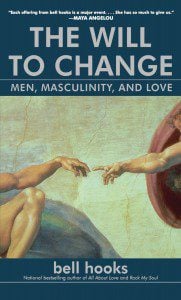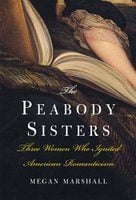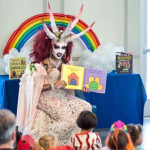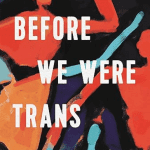Three weeks ago, devastating news began to break about a mass shooting in Isla Vista, California, near the campus of the University of California, Santa Barbara. Seven people died, including the shooter, 22-year-old Elliot Rodger. Thirteen more people were injured. As details began to emerge, word spread about a misogynistic manifesto Rodger had posted to YouTube regarding his motivations.
To counter the hateful myths and half-truths in Rodger’s online rants, the Twitter hashtag #YesAllWomen was created to share stories of the sexism, harassment, and assault that yes all women face the threat of daily. There had been a total of 2.3 million tweets in the last 30 days using the #YesAllWomen. I’ll share just a few of them that were curated in a New Yorker article:
- #YesAllWomen because ‘I have a boyfriend’ is more effective than ‘I’m not interested’ — men respect other men more than my right to say no
- Because I’ve already rehearsed “Take whatever you want, just don’t hurt me.” #YesAllWomen
- #YesAllWomen because every time I try to say that I want gender equality I have to explain that I don’t hate men.
- Men’s greatest fear is that women will laugh at them, while women’s greatest fear is that men will kill them. -Margaret Atwood #YesAllWomen
- Because in about 30 states, rapists whose victims choose to keep the baby can get parental rights, like weekend visitation. WTF #YesAllWomen
- #yesallwomen because apparently the clothes I wear is a more valid form of consent than the words I say
- I repeat: the fact that there are male victims isn’t proof it’s not misogyny. It’s evidence that misogyny hurts men too. #YesAllWomen
- Because if I know I will be out til after dark, I start planning my route home hours, even days, beforehand #yesallwomen
Magin, my wife, has been following this story closely, and gave me permission to share the following brief reflection that she wrote. As you read it on this day after Father’s Day, I invite you to reflect on what steps we might take individually and collectively to create a healthier masculinity in our culture, what bell hooks in her book The Will to Change: Men, Masculinity, and Love calls a “feminist masculinity” (117) — as opposed to the toxic, entitled, wounded, patriarchal masculinity found pervasively in our culture, not just in Rodger’s manifesto. Magin writes that:
Throughout my life, I, a completely average woman, have encountered men behaving weirdly (and sometimes badly). This story is uniquely mine. It also belongs to #EachEveryWoman who learns to walk fast, carry her keys like a weapon, never put her drink down, never walk alone, stay in well-lit areas, avoid eye contact, and is taught she can –– superhumanly–– fend off an attacker with a tiny can of pepper spray.
I have not slept well since the news of Elliot Rodger’s horrific YouTube manifesto has emerged, followed by the rise of #NotAllMen on Twitter. A few days ago, I had to block a man whose idiotic tweet attempted to derail one of my pre-dawn #YesAllWomen tweets about marital rape and domestic violence statistics.
Later, I found myself thinking about real-world microaggressions similar to this virtual interaction. By “microaggression,” I mean the small moments at school and at work, where I have been bothered by men who’ve sought to undermine my inherent worth, dignity, and autonomy. Put another way, these men have seen and treated me as an object.
To name a few: There was the man who said “better run” and chased me down a hallway, the maintenance worker who low-level stalked me and was removed from a building where I worked, the men who screamed at me last summer as I walked from my car to my office, the man who entered my office and told a joke that ended with a punchline involving penile length. All this happened in red states and blue states, in the North and the South, in broad daylight and often in front of other people.
My experiences are sadly, truly common place. Far worse happens every day to all women in all parts of the world. In a twenty-first century world where violence and death are still the cost of being female, we cannot afford a masculinity that glorifies chauvinism. I want to believe social media and the rise of #YesAllWomen will ignite a revolution in which men and women demand better for ourselves and our children. Don’t we owe them a safer world than the one handed down to us?
Last year around Father’s Day, I wrote a post about “The Sacred Masculine” in which I invited us to consider that most of us, irrespective of our biological sex, have some masculine aspects of ourselves, as well as some feminine aspects. To use classical archetypes, masculine energy is often described as bright, hot, hard, active, above, up, external, and solid. Feminine energy, in turn, is traditionally described as dark, cool, soft, still, down, interior, and empty. The perceived value of those two sets of words is too often shaped by our culture’s misogyny, sexism, and heteronormativity. The invitation is to experience the sense in which almost everyone has the potential to realize a healthy masculinity and a healthy femininity within themselves over the course of a lifetime. There are times when each of us needs to run bright, hot, hard, active, above, up, and external — and times when each of us needs to turn inward to the dark, cool, soft, still, down, and empty. And part of the journey toward maturity is becoming more conscious of what previously dwelled only in our unconscious, which includes becoming increasingly aware of both our inner masculine and our inner feminine.
Unhealthy masculinity — such as what we saw in an extreme way with Elliot Rodger’s mass shooting — tends to be narcissistic, acting impulsively without consideration of the impact on others. This chauvinistic style of masculinity is one-sided, and is characterized by “power-over” instead of “power-with.” And one of the most importance parts of the #YesAllWomen and #EachEveryWoman social media hashtags is that they are raising awareness of how widespread and commonplace sexism, harassment, and abuse of women is. These hashtags are also giving men and women permission — sometimes for the first time — to speak their truth publicly. In the long run, silence allows the sexist status quo to persist unchallenged.
But speaking up often carries risks.If you or someone you know if at risk, I encourage you to contact some of the local or national resources that can help. Some starting points are here.
As reported in The New York Times,
The statistics on violence and discrimination against women are just staggering. The United Nations Entity for Gender Equality and the Empowerment of Women has reported that:
■ According to a 2013 global review of available data, 35 percent of women worldwide have experienced intimate-partner violence or non-partner sexual violence….
■ In Australia, Canada, Israel, South Africa and the United States, violence by intimate partners accounts for between 40 percent and 70 percent of all murders of women.
■ More than 64 million girls worldwide are child brides; 46 percent of women ages 20 to 24 in South Asia and 41 percent in West and Central Africa report that they married before the age of 18.
■ Approximately 140 million girls and women in the world have suffered female genital mutilation/cutting.
■ In the United States, 83 percent of girls 12 to 16 have experienced some form of sexual harassment in public schools.
As I have quoted before from Parker Palmer, when we hear statistics likes those or when we hear tragic headlines like the Isla Vista shootings, our heart breaks. But Palmer says, “There are two ways for the heart to break: apart into many shards like a fragment grenade, or open into greater capacity so we can hold life’s inevitable tensions creatively, not destructively.” And one prominent reaction of the surge of #YesAllWomen tweets was the overly defensive creation of the #NotAllMen.
I suspect that some of you can see how this hashtag indicates a potentially narcissistic, toxic masculinity. #YesAllWomen was never saying #YesAllMen. But #NotAllMen takes a powerful, viral moment of women sharing their experience and makes it about some men wanting to make sure everyone knows that they are one of the good guys. I recognize that #NotAllMen is likely well-intended, but “intention does not always equal impact.”
The invitation is to ask, what is underneath that impulse of some men to make #YesAllWomen about their experience instead of allowing their heart to be broken open in compassion? Out of such deep listening to another’s pain, authentic transformation can occur. And I offer this example for us all — including myself — to become more aware of when we move too quickly from listening to another’s experience to sharing about our own. We can learn to stop our selves on those occasions and say inside, “Wait. This is not about me.” And allow yourself to simply be present to the one before you in pain.
A more positive, open-hearted approach emerged in the #AllMenCan. Instead of the defensive #NotAllMen, #AllMenCan spoke of concrete steps toward creating a more feminist masculinity:
- #AllMenCan…treat women as equals
- …challenge and dismantle patriarchy
- …empower women
- …stop objectifying women
- …understand that a dress is not a yes
And it is vital to name that a feminist masculinity is so much healthier for men as well as women compared to the toxic, patriarchal masculinity that demands that men must always:
- Stop crying.
- Be cool.
- Don’t be weak.
- Don’t be a “little girl”
- Be a man.
- Man up.
And although there are responsible, respectful, women-affirming gun owners in our country, it is no coincidence — and the Isla Vista mass shooting is only the latest tragic example — that this sort of toxic masculinity often fetischizes guns in disturbing ways. You don’t have to be a Jungian analyst to see that guns can be a phallic symbol used on the surface as a defense against physical vulnerability, but which underneath may well just as much be about a defense against emotional vulnerability. The result is that this patriarchal masculinity trains men to spend their lives as emotional infants.
 In contrast, bell hooks writes that feminist masculinity affirms that men “do not have to ‘do,’ to ‘perform,’ to be affirmed and loved” (117). That’s radical statement for most men, including myself, who often — even though we may know better — still find ourselves feeling like we have to constantly work to be worthy of love and respect. The stereotype is the male workaholic, who exhausts himself every day to be worthy of his family’s love and respect, comes home exhausted with no time and energy to spend time with his partner or kids, and zones out in front of the television (or with alcohol or drugs) only to start the vicious cycle over the next day. Feminist masculinity is a perspective that says, you don’t have to maintain that constant, impenetrable stance of power-over (of being in control). It invites men to see that we’re all in this together. We can share the work, rest, and play. That’s power-with, that’s partnership instead of patriarchy.
In contrast, bell hooks writes that feminist masculinity affirms that men “do not have to ‘do,’ to ‘perform,’ to be affirmed and loved” (117). That’s radical statement for most men, including myself, who often — even though we may know better — still find ourselves feeling like we have to constantly work to be worthy of love and respect. The stereotype is the male workaholic, who exhausts himself every day to be worthy of his family’s love and respect, comes home exhausted with no time and energy to spend time with his partner or kids, and zones out in front of the television (or with alcohol or drugs) only to start the vicious cycle over the next day. Feminist masculinity is a perspective that says, you don’t have to maintain that constant, impenetrable stance of power-over (of being in control). It invites men to see that we’re all in this together. We can share the work, rest, and play. That’s power-with, that’s partnership instead of patriarchy.
Feminist Masculinity, looks like celebrating that The Rev. Dr. Amy Butler, my former colleague from the Alliance of Baptists, was called last Sunday to become the first female senior minister at the historic Riverside Church in New York City. We need to savor the times when change and progress happen.
Feminist masculinity looks like teaching boys (and men!) that women’s bodies do not exist as constant sexual objects. One example is teaching that public breastfeeding is natural and neither offensive, nor an invitation for oggling. One of the many blatant double standards in our society is any man — no matter his physical condition — can walk around almost anywhere with his shirt off, but in most places a woman would be arrested for doing so. And I’m assuming that two words will suffice about what Freud would say about grown men who are scandalized by public breastfeeding: “Mommy issues.” Take it up with a therapist, not with the mother simply trying to feed her child in peace.
Feminist masculinity looks like, a blog post from one of my colleagues who teaches her sons to be aware that especially at night or in isolated areas they can unintentionally threaten women if they are walking behind them. So she teaches her sons, in such situation, to “cross over to the other side of the street.”
Feminist masculinity looks like being careful of saying “boys with be boys” as an excuse. For one thing, I have too many friends who are parents of girls that I could call up to testify that girls can be equally as gross, destructive, and hyperactive as any boy. How about “children will be children?”
Feminist masculinity also looks like the beautiful outdoor wedding at which I officiated yesterday in which tears were at many moments streaming down the face of both the bride and the groom unabashedly, joyfully, without shame. The father of the groom got up at one point during the ceremony to offer a kleenex to both the bride and to his son.
On that note, I will end with perhaps the most obvious and the most important. Feminist masculinity looks teaching our boys and men the practice of naming your feelings out loud. Instead of keeping your feelings locked inside, simply naming when you are happy, sad, afraid, angry, jealous, frightened, nervous, ashamed, worried. And it looks like giving yourself permission to cry.
our boys and men the practice of naming your feelings out loud. Instead of keeping your feelings locked inside, simply naming when you are happy, sad, afraid, angry, jealous, frightened, nervous, ashamed, worried. And it looks like giving yourself permission to cry.
I have had so many people come to my office over the years — both male and female — start to cry, and say, “I’m sorry, I’m crying.” Allow me to say publicly what I tell individuals privately, follow the tears. The way out is through what you are feeling. Let your emotions out, give yourself time and space to process them, and over time integrate them. Keeping your feelings repressed and compartmentalized results in emotional infants who in the most extreme cases lash out and kill others because they have never learned healthy ways of emotionally connecting and being vulnerable (156).
If you need some practice, go see the new film The Fault in Our Stars. As I heard one reviewer says, as I watched this movie, “I felt all the feelings.” And as we learn to be honest and transparent about what we are feeling, may we, in the words of bell hooks, support one another “with open hearts and open arms” (188). Together, may we help build a world — a Beloved Community — in which all of our boys and girls, all of our men and women can all point to themselves and say, “This is what a feminist looks like.”
The Rev. Dr. Carl Gregg is a trained spiritual director, a D.Min. graduate of San Francisco Theological Seminary, and the minister of the Unitarian Universalist Congregation of Frederick, Maryland. Follow him on Facebook (facebook.com/carlgregg) and Twitter (@carlgregg).
Learn more about Unitarian Universalism:
http://www.uua.org/beliefs/principles
















